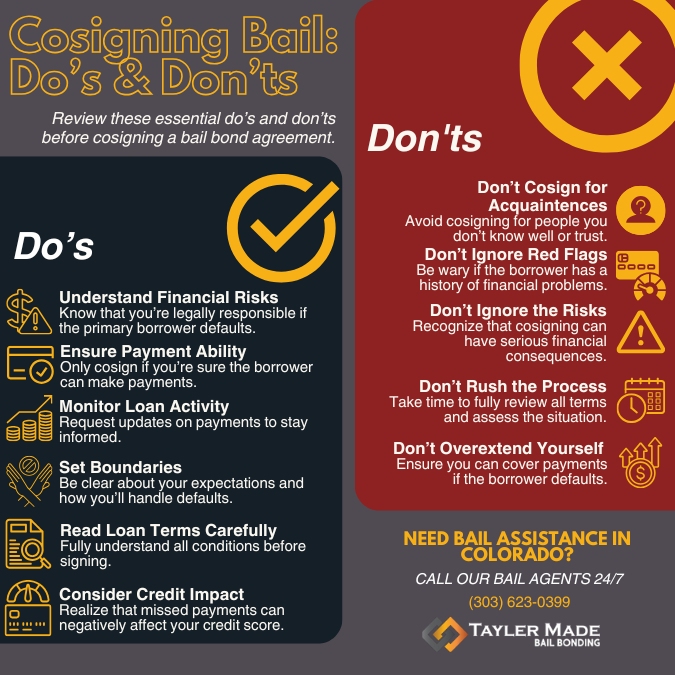Understanding the Bail Bonding Process
News and Resources
When someone is arrested and charged with a crime, the legal system sets a series of procedures in motion. Below is a breakdown of the key stages in the bail bonding process.
Stage One: Arrest and Booking
After an arrest, the accused is taken into custody, where the booking process begins. This involves:

- Recording the individual's personal information.
- Taking fingerprints and photographs.
- Conducting a background check for criminal history and outstanding warrants.
- Confiscating personal property for safekeeping.
- Placing the accused in a holding cell.
- Determining bail—either immediately or through a scheduled hearing.
For minor offenses, the accused may be released on recognizance, meaning they sign an agreement to appear in court without posting bail. This decision is influenced by factors such as:
- The severity of the crime.
- Criminal history.
- Potential threat to public safety.
- Community ties, which indicate the likelihood of fleeing.
Stage Two: Bail Ruling
.jpg)
Bail acts as a financial guarantee that the accused will appear in court. If they fail to do so, the bail is revoked, and a warrant is issued for their arrest.
The court considers several factors when setting bail:
- Physical and mental state
- Financial situation
- Community ties
- History of substance abuse
- Criminal record
If bail is granted, the court may impose conditions, such as travel restrictions, electronic monitoring, or curfews, depending on the circumstances.
Stage Three: Securing a Bail Bond
Once bail is set, the accused has three options:
- Remain in jail until the court date.
- Pay the full bail amount out of pocket.
- Use the services of a bail bonds agent.
In most cases, defendants cannot afford to post bail themselves and seek help from a bail bondsman. The bail agent assesses the case to decide whether to post bail. If approved, a family member or friend typically pays a non-refundable percentage of the total bail amount, while the bondsman covers the rest.

Co-Signing a Bail Bond Agreement
Co-signers play a crucial role in securing a bail bond. By signing a promissory note, they agree to cover the full bail amount if the defendant fails to appear in court. Bail bondsmen may require collateral, such as homes, vehicles, jewelry, or other assets, to secure the bond.
If a co-signer suspects the defendant may flee, they can request the bail bondsman to withdraw the bond, leading to the defendant’s return to custody. Co-signers may also set conditions, such as requiring the defendant to enroll in a treatment program.
Is Collateral Always Necessary?
Collateral may not be required if the co-signer has strong financial standing. Bondsmen evaluate each case and may waive collateral if the co-signer demonstrates reliability.
The co-signer, also known as the indemnitor, is responsible for ensuring the defendant follows all bail conditions. If the accused skips court, the indemnitor must repay the bondsman for any losses.
Who Can Be a Co-Signer?

Not everyone qualifies as a co-signer. Bail bond companies typically assess:
- Credit history: Poor credit may disqualify an applicant.
- Employment stability: A steady work history signals reliability.
- Community ties: Foreign nationals or those without strong local connections are often ineligible.
Considerations Before Co-Signing
Co-signing a bail bond is a serious commitment. If the defendant fails to appear in court, the co-signer could be held financially liable, including losing any collateral posted. We'd strongly recommend reviewing the recommendations in the infographic below before agreeing to cosign for a loved one's bail agreement.

Click here to download a PDF version of the infographic above.
Stage Four: Release from Custody
Once bail is posted, the defendant is released under specific conditions, including:
- Attending all court hearings.
- Avoiding further legal trouble.
- Adhering to any restrictions imposed by the court (e.g., curfews, travel bans).
The release process can take several hours, depending on the jail’s workload and case complexity. Failure to comply with release conditions can result in bail revocation and re-arrest.
Stage Five: Court Appearances

Who Can Be a Co-Signer?
Attending scheduled court dates is crucial to completing the bail process. If the defendant misses a hearing, the court may issue a warrant for their arrest, and the posted bail could be forfeited. If all conditions are met and the case concludes, the bail bond agreement ends, regardless of the trial’s outcome.
Factors That Can Affect Bail Agreements
Additional Charges and Bail Adjustments
If the defendant is charged with additional crimes after release, the court may reassess the bail amount. The District Attorney may request a bail increase, requiring the defendant to pay the difference. If the defense successfully argues against the increase, the bail remains unchanged.
Process for Paying Additional Bail
If bail is increased—say from $10,000 to $20,000 - the defendant must pay the difference or arrange for the bondsman to cover the new amount. If the bondsman declines or the defendant cannot pay, the original bond may be revoked, and the defendant returned to custody.
For Affordable Bail Bonds, Contact Tayler Made
If you’ve been arrested and are offered bail the smart move is to accept it and contact Tayler Made Bail Bonding at:303-623-0399
Need Bail Assistance?
If additional charges raise your bail amount, working with a bondsman can help arrange payment. Bondsmen are generally willing to assist if you can cover the adjusted fee.
For bail bond services, contact Tayler Made Bail Bonding at (303) 623-0399. We offer 24-hour bail services to ensure you don’t remain in custody longer than necessary.
Contact Info
Tayler Made Bail Bonding is available 24 hours a day and 7 days a week.
(303) 623-0399email@taylermadebailbonding.com
3595 South Teller Street
Suite 300A
Lakewood, CO 80235
@TaylerMadeBail

